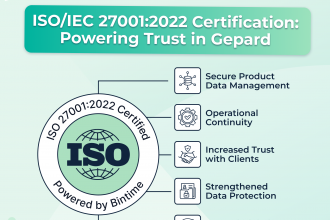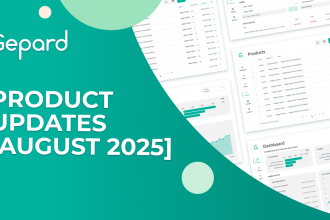How to Choose a B2B eCommerce Platform: A Complete Guide
Are you ready to unlock the B2B eCommerce goldmine? Buckle up, because it’s a treasure trove waiting to be unearthed! By the end of 2024, experts predict that the global B2B eCommerce market will hit an astonishing $20.9 trillion, setting a record. Overall, only U.S. B2B eCommerce sales are anticipated to grow to $3 trillion by 2027.
This guide is your compass to the key factors and the ideal B2B eCommerce platform that will lead you to success. Get ready to lead your business to new heights in the digital world!
What is a B2B eCommerce Platform?
They provide a diverse range of B2B eCommerce platform features. These platforms streamline complex purchasing processes, facilitate bulk orders, and offer features such as custom pricing and personalized catalogs.
How to Choose a B2B eCommerce Platform
Selecting the right B2B eCommerce platform can significantly impact your business’s efficiency, sales growth, and customer relationships. It functions as a continuous sales channel, ensuring uninterrupted access to your products and services.
Identify Your Business Needs
When determining how to select a B2B eCommerce platform, start by understanding your specific needs. This includes:
- Industry: Different industries have unique requirements. Ensure the platform caters to your specific industry’s unique features and regulations.
- Product Catalog: Review the size of your product catalog. Some platforms are better suited for managing extensive product lines with variations.
- Budget: Determine your financial resources for platform implementation and ongoing maintenance. Select a solution that will work for your budget.
- Scalability: Anticipate your business growth and choose a platform with B2B eCommerce platform scalability. It should be able to scale alongside your evolving needs.
- Integration: Assess your existing systems (e.g., ERP, CRM) and ensure the platform can integrate seamlessly with them to streamline operations.
Evaluate Platform Features
Next, evaluate the B2B eCommerce platform options by examining their features:
- Product Information Management (PIM): Efficiently manage product information, including descriptions, images, and specifications.
- Marketing & SEO Tools: Drive traffic and improve search engine rankings with built-in marketing and SEO tools.
- Order Management: Streamline order processing, inventory management, and fulfillment.
- Customer Relationship Management (CRM) Integration: Enhance customer relationships and personalize experiences by implementing it into your CRM system.
- Payment Processing: Offer diverse payment options that cater to B2B buyers’ preferences.
- Security Features: Prioritize security measures like PCI compliance and data encryption to protect sensitive information.
- Analytics & Reporting: Get insights related to customer behavior, sales pattern, and overall platform performance to make data-driven decisions.
Consider User Experience
An important aspect of how to pick B2B eCommerce software is the user experience. To follow-up, pay attention on:
- Intuitive Interface: Remember, that the platform has to be easy for navigating by both administrators and customers.
- Mobile Responsiveness: Optimize the platform for mobile devices to cater to on-the-go users.
- Customization: Tailor the platform’s appearance and functionality to reflect your brand identity and meet specific needs.
Assess Technology and Integration
- API Availability: An open API allows for compatibility with third-party applications, such as product content syndication platforms, and future customizations.
- Hosting Options: Choose between cloud-based or on-premise hosting, considering factors like scalability, security, and maintenance.
- Technical Support: Ensure the platform provider offers reliable technical support for troubleshooting and issue resolution.
Check Platform Scalability
- Traffic Capacity: Choose a platform that can handle high traffic volumes without compromising performance.
- Data Storage: Ensure sufficient data storage capacity for your product catalog, customer data, and order history.
- Flexibility: The platform has to be adaptable to your growing business needs and accommodate future changes.
Review Security and Compliance
- PCI Compliance: Check the platform is adhering to Payment Card Industry Data Security Standards (PCI DSS) to secure cardholder information.
- Data Encryption: Confirm that sensitive data is encrypted both in transit and at rest to prevent unauthorized access.
- Security Audits: Regularly review security audits and updates to address potential vulnerabilities.
Compliance: Ensure the platform complies with relevant industry regulations and data protection laws.
Analyze Pricing and Total Cost of Ownership
- Licensing Fees: Evaluate the initial licensing costs and recurring subscription fees.
- Transaction Fees: Understand the transaction fees associated with each sale.
- Implementation Costs: Factor in the costs of customization, integration, and training.
- Maintenance Fees: Consider ongoing maintenance and support costs.
Look into Support and Resources
- Customer Support: Choose a platform provider with responsive customer support channels (e.g., phone, email, live chat).
- Training Materials: Make sure the platform offers detailed training materials for administrators and users.
- Community Resources: Access forums or communities where you can connect with other users and seek assistance.
By focusing on these factors, you’ll be able to make an informed decision and select the B2B eCommerce platform that best resonates with your business goals and needs.
What are the best B2B eCommerce Platforms?

Let’s take a look into some top-performing platforms in the B2B eCommerce:
-
Shopify Plus
Shopify Plus is a fully hosted, cloud-based platform renowned for its user-friendly interface and extensive app ecosystem. It offers a robust suite of features, including customizable storefronts, advanced marketing tools, and multi-channel selling capabilities. Shopify Plus is particularly well-suited for high-volume businesses seeking a scalable and reliable solution.
Gepard Integration: Connect your Shopify Plus store with Gepard PIM for streamlined product information management.
-
BigCommerce
BigCommerce is another leading cloud-based platform that offers a wide range of features, including customizable templates, SEO tools, and multi-currency support. It is known for its adaptability and scalability, making it a popular choice for B2B eCommerce SME businesses of all sizes.
Gepard Integration: Integrate your BigCommerce store with Gepard PIM for efficient product data management and syndication.
-
WooCommerce B2B
WooCommerce B2B is an open-source plugin for WordPress that transforms your website into a powerful B2B eCommerce store. It offers a high number of options for customization, allowing businesses to adjust the platform to their unique needs. WooCommerce B2B is an excellent option for businesses seeking a cost-effective and flexible solution.
Gepard Integration: Streamline product data management and enhance your WooCommerce B2B store with Gepard PIM integration.
-
Alibaba
Alibaba is the world’s largest B2B online marketplace, connecting buyers and sellers from around the globe. It offers a wide range of products in various industries, competitive pricing, and secure payment options. Alibaba is an ideal platform for businesses looking to grow their reach and tap into international markets.
Gepard Integration: While Gepard does not currently offer direct integration with Alibaba, our PIM solution can help you prepare and optimize your product data for listing on the platform.
-
Amazon Business
Amazon Business is a dedicated B2B marketplace from Amazon, offering a wide range of products, business-only pricing, and convenient purchasing options. It provides access to a massive customer base and relies on Amazon’s established logistics and fulfillment network. It can help to improve your omnichannel delivery.
Gepard Integration: While Gepard does not currently offer direct integration with Amazon Business, our PIM solution can help you organize and optimize your product data for listing on the platform.
B2B eCommerce Platforms Pros and Cons
To help to make your choice, we’ve compiled a comparative analysis of the top B2B eCommerce solutions mentioned above:
| Platform | Pros | Cons |
| Shopify Plus | ▪️An interface that is easy to use and quick to learn. ▪️Extensive app store with various integrations and add-ons. ▪️Scalable infrastructure to accommodate business growth. |
▪️Transaction fees can be costly for high-volume businesses. ▪️Customization options are more restricted compared to open-source platforms. |
| BigCommerce | ▪️Highly customizable with numerous themes and templates. ▪️Built-in SEO features and marketing tools. ▪️Supports multichannel selling across various online marketplaces. |
▪️Pricing plans can be complex and may require careful evaluation. ▪️May require technical expertise for some features. |
| WooCommerce B2B | ▪️Open-source platform offering extensive customization options. ▪️Flexible solution, especially for small businesses. ▪️A big network of developers and users, ready to support. |
▪️Requires technical knowledge for setup and maintenance. ▪️May necessitate additional plugins for specific functionalities. |
| Alibaba | ▪️Access to a wide group of suppliers and buyers worldwide. ▪️Competitive pricing due to the large number of suppliers. ▪️Secure payment options and trade assurance services. |
▪️Limited control over branding and customer experience. ▪️Potential for counterfeit or low-quality products. ▪️Complex shipping and logistics for international orders. |
| Amazon Business | ▪️Wide range of products across various categories. ▪️Business-only pricing and bulk purchasing options. ▪️Leverages Amazon’s established logistics and fulfillment network. |
▪️High competition from other sellers on the platform. ▪️Limited customization options for branding and storefront. ▪️Strict seller policies and performance requirements. |
Your Path to B2B eCommerce Success
Utilizing the right B2B eCommerce platform is important for your business’s online success. Thoroughly evaluating your specific needs and the platform’s capabilities will ensure a seamless fit. Gepard PIM further streamlines this process, consolidating product information and enabling efficient multi-channel selling so you can focus on growth.
Schedule a complimentary consultation with a Gepard eCommerce specialist today. Contact us to learn more.


